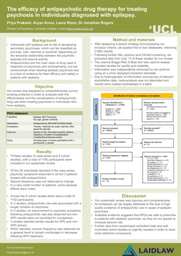Final Reflections on the Laidlaw Scholarship
The battle for authenticity is long-fought and hard-won. Like many, I have spent an embarrassing number of hours in my life trying to map my own psyche. Am I really funny if I managed to land a joke or two last week but the crowd was most definitely not going wild yesterday? Am I truly intelligent if I just got the wordle in one try but I fell for a phishing scam this morning? In some kind of perversion of the classic adages “charity starts at home” and “it’s not you, it’s me”, at some point I had made the subconscious decision that I could not fully or meaningfully contribute to the world around me until I had finally finished looking inward. This general hesitancy and desire for the absolute spilled into other aspects of my life, convincing me, for example, that the perfect email should take 40 days and 40 nights to artfully craft. In rejecting uncertainty and insisting on reconciling these inconsistencies in my personality, I had at some point inadvertently become a citizen of the self, rather than a citizen of the world around me. In the words of Virginia Woolf: “Thought and life are as the poles asunder.”
From the outset, the Laidlaw Scholarship gave me a chance to correct this perception. Meeting our cohort, I was immediately surprised at the diversity in character amongst us. Although we had all been judged to show the same promise for leadership and meaningful research, no two people seemed similar to me at all: there seemed to be no archetypal Laidlaw Scholar. Spending more time with the other scholars, hearing about their interests, their goals, and their understanding of what constitutes good leadership, I soon realised that I held all of these people in equally high esteem, each for entirely different reasons. This was the first sign that there may be several ways to be successful and lead well, and in this new light, perhaps containing multitudes should be treated as an inevitable and celebratory thing.
Throughout this programme, I have participated in and lead projects in entirely unfamiliar areas. I have been thrown in the deep end, without opportunity for doubt or even preparation, and have proven to myself that I am capable of adapting to challenge. For example, I would never have considered that as an undergraduate, and a very unfinished product, I would be able to write and publish a paper in the world’s leading epilepsy journal. This was compounded during my LIA project, whilst watching our coordinator, Toula, lead instinctively, effortlessly, and unconventionally, driven by her passion for and extensive knowledge about our joint cause. Toula is living proof that there is a time and place for thinking about what leadership may be, and another for actually leading, a reminder that who you are and how you lead is largely a product of what you do, which itself is entirely in your control.
The Laidlaw scholarship has taught me the value of trusting my intuition rather than excessively interrogating and intellectualising it, and how to strike a more proportionate balance between reflection and action. This is not to say that I will abandon musings on leadership and character altogether, but I now know that this timescale of thought and action is not linear. In other words, it is ok to act without the preceding thought being fully and immaculately conceived, and in the case of leadership it may actually be essential. I have learned to put myself in the position to make mistakes and correct my misperceptions, to gain concrete and extensive experience leading, rather than channelling all of my efforts into building an entirely theoretical and academic understanding of leadership. With the time once spent ironing out the inconsistencies in my person now freed up, I paradoxically feel more ready and able to lead, more ready to turn outwards, to look at the world around me, and to understand others. The first of many baby steps taken towards becoming a truly global citizen.

Please sign in
If you are a registered user on Laidlaw Scholars Network, please sign in